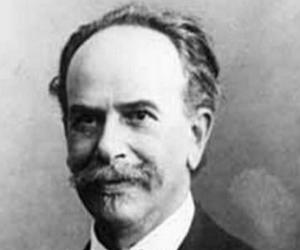

Then in the spring of 1908, a special new opportunity came Boas’s way that promised to resolve a host of difficulties at once. Aware that more bodies in the classroom meant more reason for President Butler to increase the department’s budget, he also pushed to open classes for undergraduates. In the 1907–08 academic year, he broadened the course offerings, including a new class on “The Negro Problem.” “I am endeavoring to organize certain scientific work on the Negro race which I believe will be of great practical value in modifying the views of our people in regard to the Negro problem,” he told Booker T. He contacted his old colleagues at the Bureau of American Ethnology with the idea of creating a handbook of American Indian languages, which he hoped would provide additional travel money for his students and coworkers. Things were in “a pitiable condition,” Boas wrote to Kroeber at the beginning of 1908, “and … for the time being all our former hopes and aspirations have gone to pieces.” The only solution was to try to find new sources of income, even “a complete change of interests,” he added, which might provide a more stable financial footing for the fieldwork that he hoped to continue.īoas began sending out letters to virtually any source he could think of, proposing grand research projects that might somehow attract new funding.

There were too few lecturers to cover all the fields of study. There was no money for teaching materials. He informed Boas that no increases in appropriations for anthropology would be made. Butler frowned on teachers’ spending so much time on research rather than in the lecture hall. Within only a few years, however, that early momentum seemed to stall. “It is gratifying to note that the demand for graduates of the Anthropological Department of Columbia University has always been such that practically all the young men in anthropological museums and colleges are those who have either graduated here or studied a considerable number of years in this Department,” Boas bragged to President Butler. Alexander Goldenweiser and Paul Radin, Jewish immigrants from Kiev and Łódź, finished in 19, with work on anthropological theory and Native American ethnology. He soon moved to Ottawa to head up the Canadian government’s geological survey. Edward Sapir, a Jewish immigrant from the Russian Empire, finished his degree under Boas’s direction in 1909 with a dissertation on the languages of the Pacific Northwest.

Robert Lowie, an Austrian émigré and budding expert on the Plains Indians, graduated in 1908 and later joined Kroeber on the West Coast. He was soon on his way to California, where he set up the new anthropology department at Berkeley. The first of these to complete the doctorate at Columbia, in 1901, was Alfred Kroeber, another member of New York’s German immigrant community. Many were already making names for themselves as well-rounded scholars with knowledge of ethnology, linguistics, archaeology, and physical anthropology, the four distinct fields that Boas had come to see as the foundation of a proper discipline of anthropology. It soon became an informal gathering place for a growing coterie of graduate students. “With archaeology represented,” he told the university’s president, Nicholas Murray Butler, “we should be able to train anthropologists in all directions.”īoas had decamped with Marie and the children to a rambling house across the Hudson River in Grantwood, New Jersey. He reorganized the department’s coursework to include training in linguistics and ethnology, not just the traditional anthropometry. “Neither Berlin with its five anthropological professorships, nor Paris with its anthropological school, nor Holland with its colonial school, could give a proper training to the observers whom we need,” he wrote to a colleague in 1901. The move to full-time work at the university gave Boas the opportunity to build his own team of researchers. When he formally resigned his curatorship in 1905, no one begged him to stay.

FRANZ BOAS PROFESSIONAL
His time at the museum had produced new research and exhibitions but also disappointments, professional disagreements, and hurt feelings among his colleagues, who found him confident to a fault, officious, and given to pique. He had a habit of making himself more respected than liked. In this excerpt from the new book Gods of the Upper Air, Charles King profiles the maverick Columbia professor.Īfter his appointment at Columbia, Boas’s connections with the American Museum of Natural History began to fade. A century ago, when people believed that intelligence, empathy, and human potential were determined by race and gender, Franz Boas looked at the data and decided everyone was wrong.


 0 kommentar(er)
0 kommentar(er)
